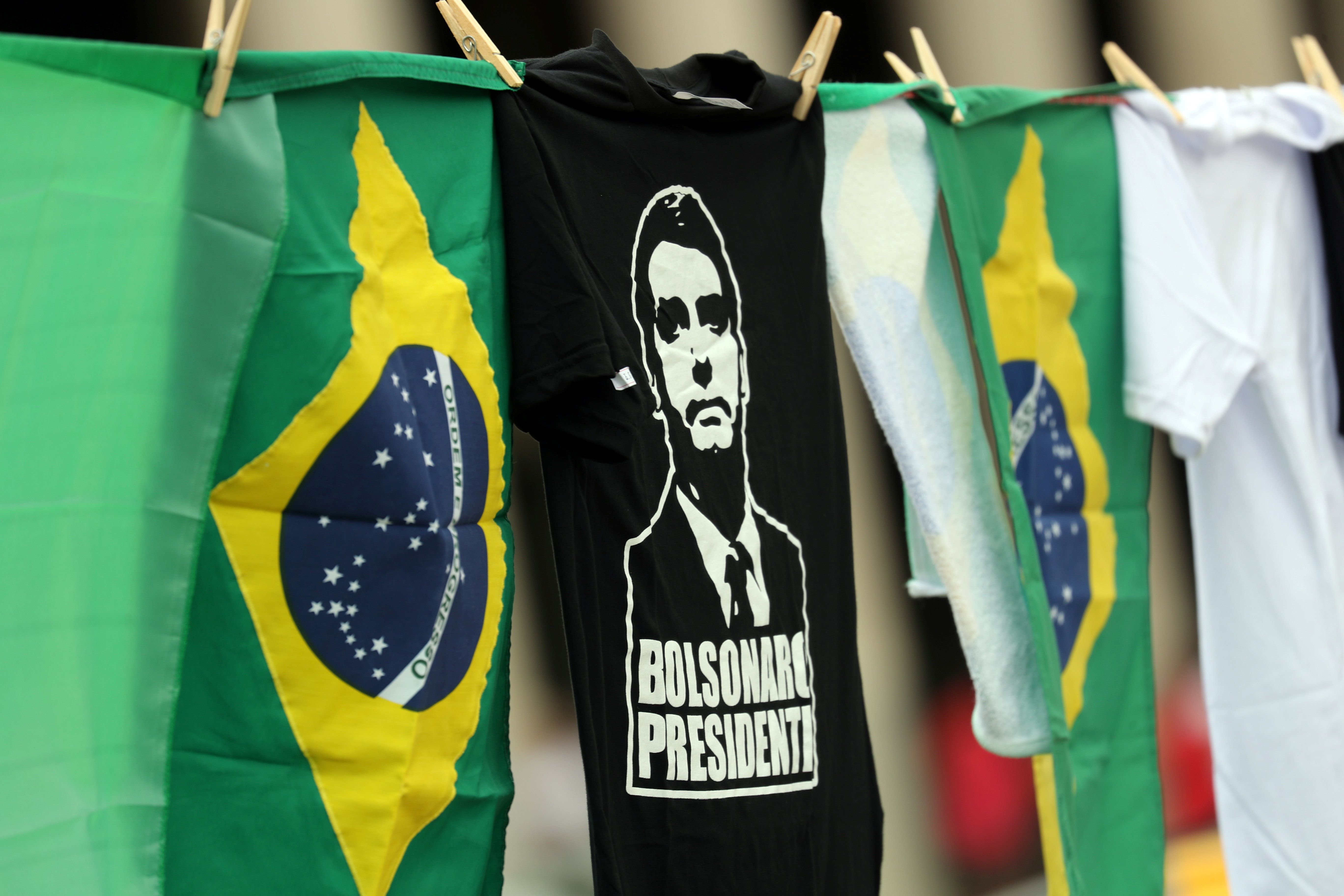If you like drama, you’ve got to love politics in Brazil, the world’s fourth-largest democracy. One of the country’s two most popular politicians is in prison, and the other is recovering from a knife attack. This weekend, Brazil’s beleaguered voters will finally head to the polls.
It’s little wonder the country’s mood is sour. Since the triumphant days of 2009 when the famous Economist cover gave us the iconic Christ the Redeemer statue lifting off like a rocket, Brazilians have suffered through…
- The worst recession in the country’s history
- Brazil’s biggest-ever public corruption scandal
- One of the world’s highest murder rates
- Deepening public polarization
- An underperforming national football team
In fact, it’s been five years since The Economist brought that statue back down in flames.
This Sunday, Brazil’s voters can vent their fury and elect new leaders. In a first round of presidential voting, they’ll choose among 13 candidates. Unless one of them gets 50 percent of the vote, the top two will meet in a second round on October 28. They will also elect 27 state governors, all 513 members of the lower house of congress, and two-thirds of the Senate.
The presidential frontrunner: Jair Bolsonaro has emerged as prime contender with a no-nonsense, law-and-order message. A former army captain with a former general as his vice-presidential running mate, Bolsonaro loves the military, hates the left, belittles women, and despises homosexuals. In an environment where crime and out-of-control entitlement spending trump other issues, Bolsonaro has built surprisingly broad appeal.
The likely challenger: His likeliest second-round opponent will be former Sao Paulo mayor and Worker’s Party candidate Fernando Haddad, a man best known as last-minute stand-in for (the far more charismatic) former president Luiz Inacio Lula da Silva, now serving a 12-year sentence for corruption. Exacerbating that recognition problem, Lula introduced Haddad to voters just three weeks ago by writing on the Workers’ Party website that Haddad “will be Lula for millions of Brazilians.” If Haddad advances beyond Sunday’s first round, he’ll have another three weeks to show voters who he really is.
The other key question: Cynicism and apathy have become potentially potent forces in Brazil’s politics. One recent poll found that just 14 percent of Brazilians have faith in the integrity of their country’s elections. Another reported that 62 percent of young Brazilians would leave the country if they could.
Will this election increase confidence in Brazil that elections can bring positive change? Or will it further widen the country’s divides and feed new doubts?
